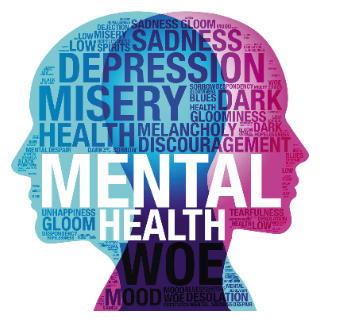In the modern world of high speed and perpetual stress and worry, it is more important than ever to discover strategies for managing mental health. One effective strategy that is becoming more and more well-known is mindfulness. Being aware is the practice of being totally present in the moment. It has its roots in ancient traditions but is also validated by contemporary science. This straightforward but profound method has the power to change our stress management strategies and enhance our mental health in general. People can develop a stronger feeling of calm, clarity, and emotional resilience by practicing mindfulness, which opens the door to a better, more balanced existence.

Some of the insights of “Ultimate Guide to Mindfulness for Stress Relief and Enhanced Mental Health”
Stress Reduction
Mindfulness practices, such as meditation and deep breathing, play a significant role in stress reduction. When we experience stress, our bodies release cortisol, a hormone associated with the “fight or flight” response. While this is a natural reaction, prolonged stress can lead to an overproduction of cortisol, which negatively impacts our physical and mental well-being.
Engaging in mindfulness helps counteract this by calming the mind and body. Meditation encourages focus and presence, which helps break the cycle of stress-inducing thoughts. Similarly, deep breathing exercises activate the body’s relaxation response, lowering cortisol levels and promoting a sense of calm. Over time, regular mindfulness practice can help build resilience to stress, making it easier to manage daily challenges with a clearer, more balanced perspective.
Enhanced Emotional Regulation
As mindfulness raises our awareness of our thoughts and feelings, it can significantly improve our ability to regulate our emotions. By engaging in mindfulness practices, we can learn to notice our feelings without jumping to conclusions or passing judgment. We are able to identify emotional patterns and triggers thanks to our increased awareness, which also gives us the opportunity to respond more carefully rather than hastily. As a result, we can develop more balanced emotional states, lessen emotional reactivity, and better control our emotions. Resilience and a stronger sense of inner calm are fostered by this enhanced emotional regulation, which also improves mental health.
Improved Focus and Concentration
Better Sleep Quality
Improving Mental Health
Understanding Mindfulness
Mindfulness involves focusing on the present moment with openness and without judgment. It encourages a deep awareness of one’s thoughts, emotions, and bodily sensations, allowing individuals to experience life more fully and with greater clarity. This practice helps break the cycle of habitual reactions and provides space to respond to life’s challenges with calm and perspective.
Benefits for Stress Relief
Stress, a common issue in today’s fast-paced world, can lead to various physical and mental health problems. Mindfulness helps mitigate stress by:
- Reducing the Impact of Stressors: By centering attention on the present, mindfulness prevents stress from escalating and helps manage the physiological and psychological responses to stress.
- Enhancing Emotional Regulation: Mindfulness cultivates a balanced approach to emotions, reducing the tendency to react impulsively and allowing for more thoughtful responses.
Enhancing Mental Health
The benefits of mindfulness extend beyond stress relief. Regular practice has been shown to:
- Alleviate Symptoms of Anxiety and Depression: Mindfulness helps break the cycle of negative thinking by fostering acceptance and reducing the intensity of distressing thoughts and feelings.
- Promote Emotional Resilience: By improving self-awareness and self-compassion, mindfulness enhances the ability to cope with emotional challenges and build a more resilient mental state.
Practical Tips for Incorporation
To reap the benefits of mindfulness, consider incorporating the following practices into your routine:
- Mindful Breathing: Focus on your breath, paying attention to its natural rhythm. This simple exercise can help ground you and reduce stress.
- Mindful Meditation: Set aside time each day for meditation, where you can sit quietly and observe your thoughts and feelings without judgment.
- Mindful Activities: Engage in daily activities, such as eating or walking, with full attention to the present moment, noticing the sensory experiences involved.
Conclusion
Mindfulness offers a powerful means of reducing stress and enhancing mental health. By fostering a greater awareness of the present moment and cultivating a more balanced approach to emotions, mindfulness can lead to significant improvements in overall well-being. Whether through structured meditation or integrating mindfulness into daily activities, embracing this practice can pave the way for a more peaceful and fulfilling life.


Leave a Reply